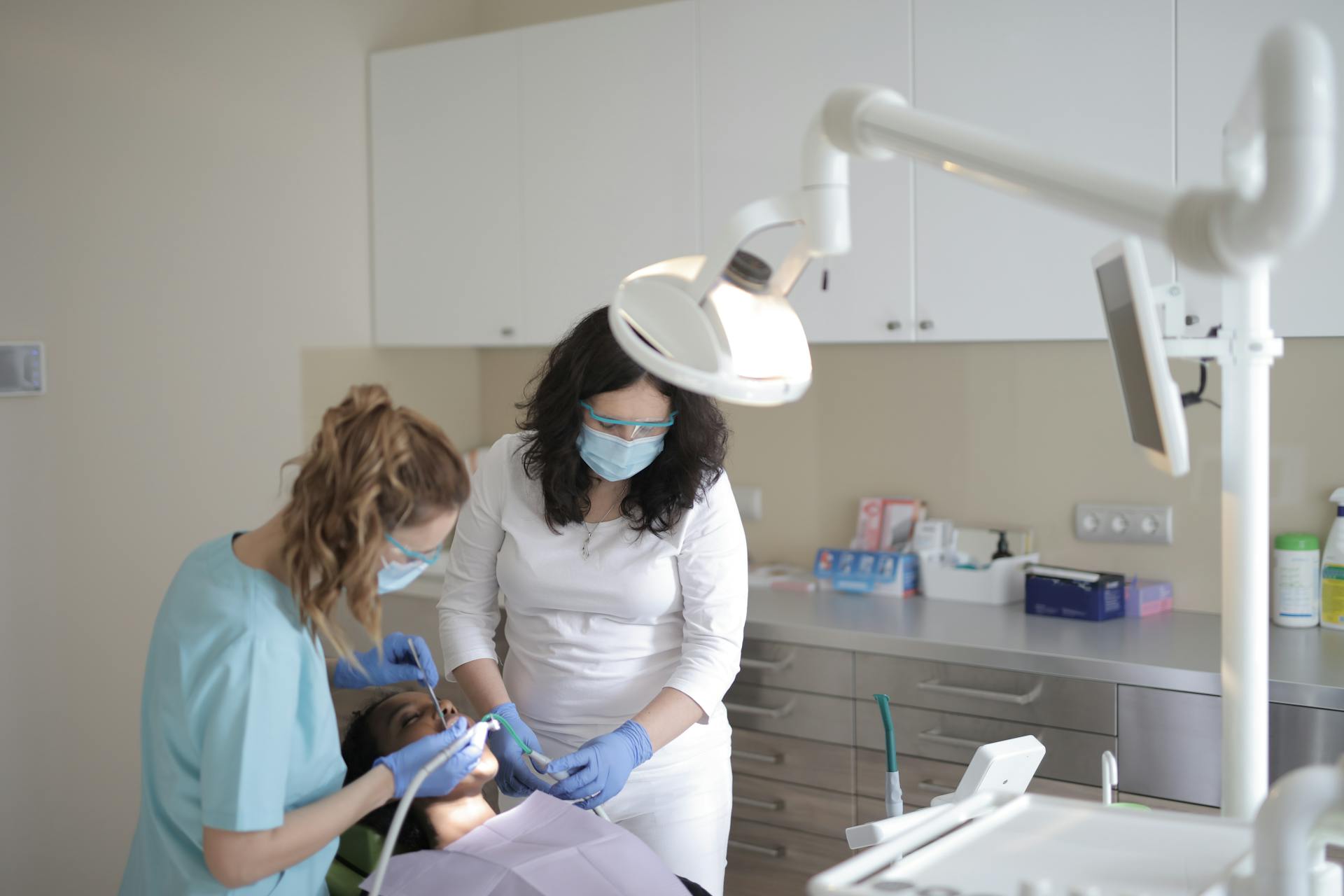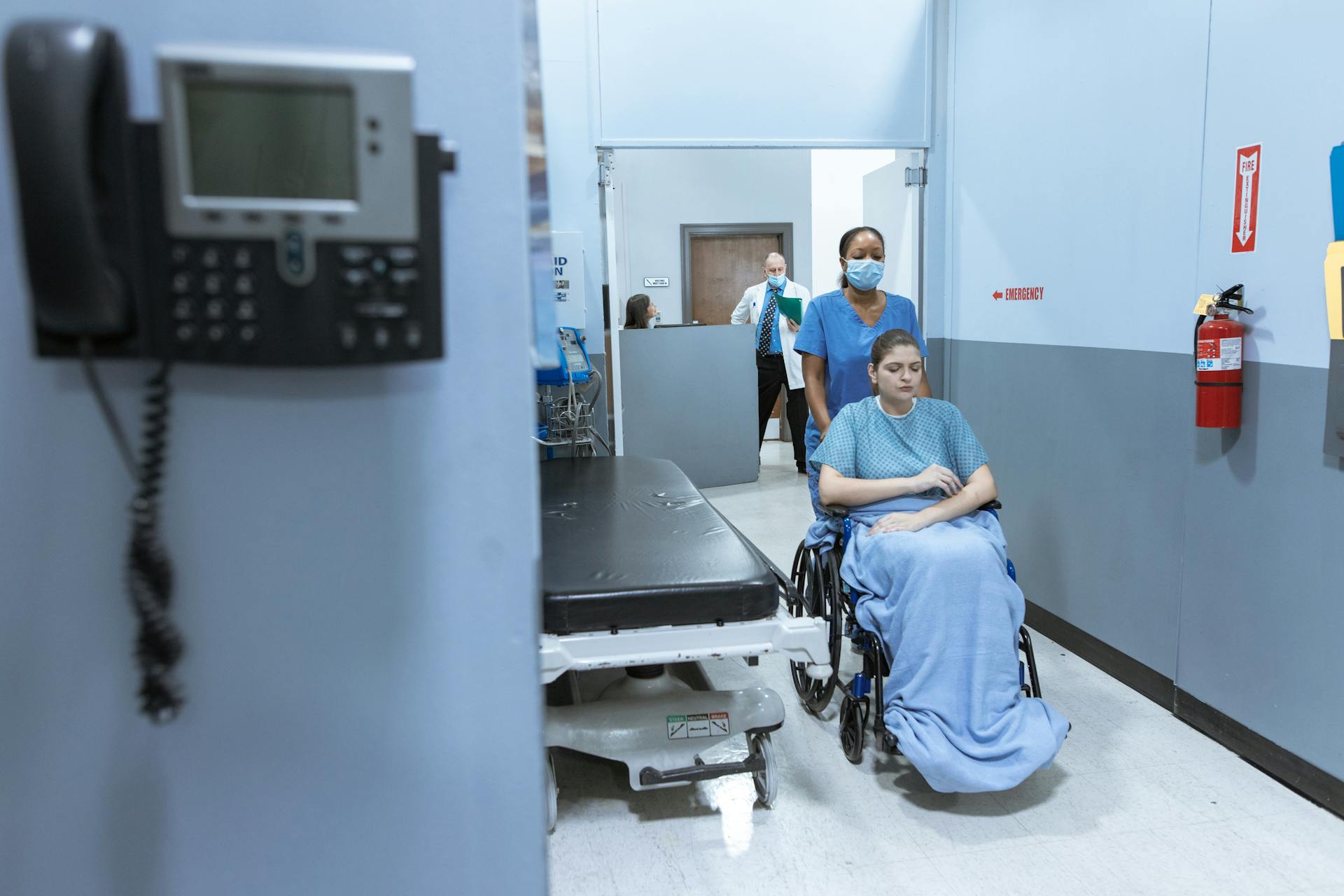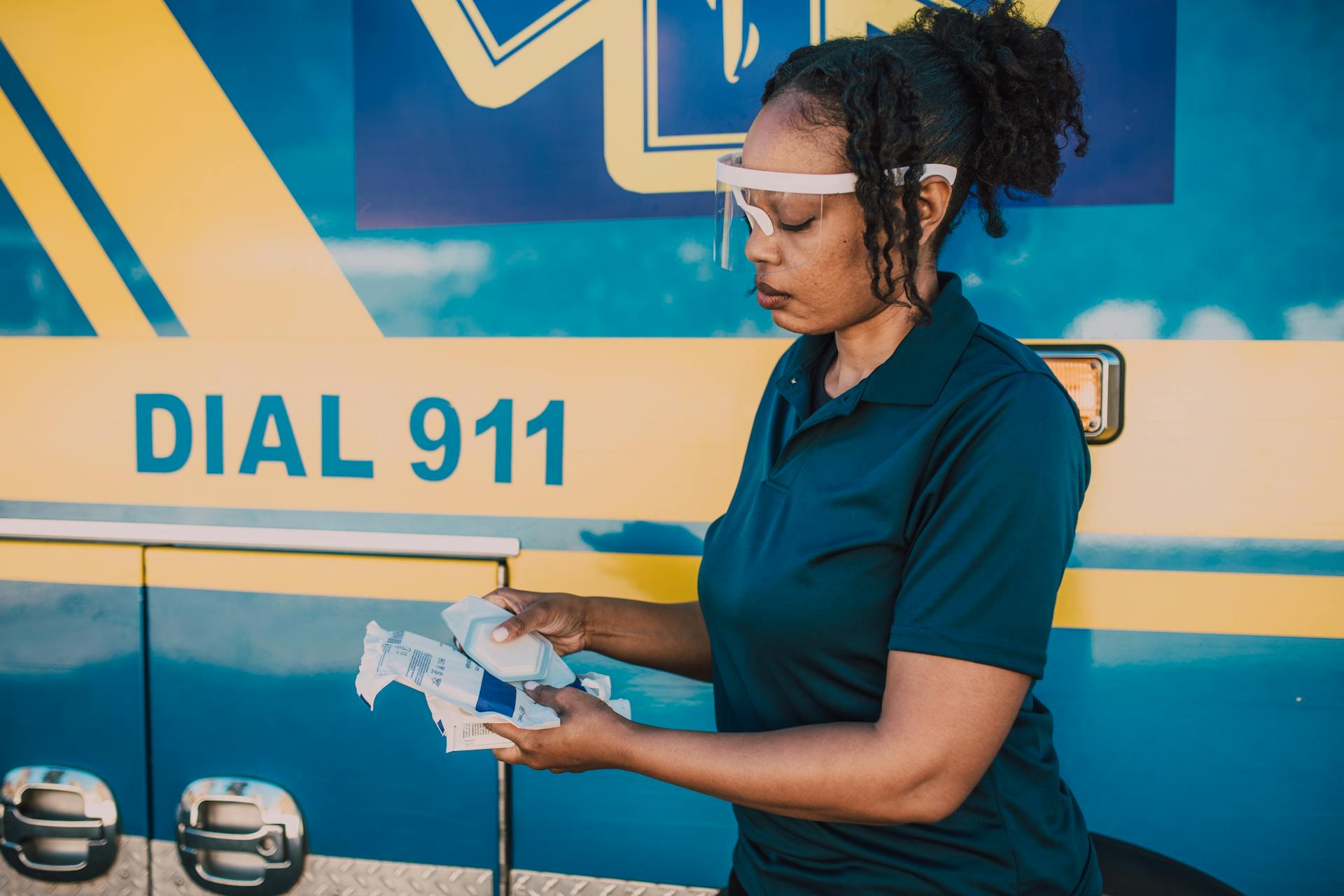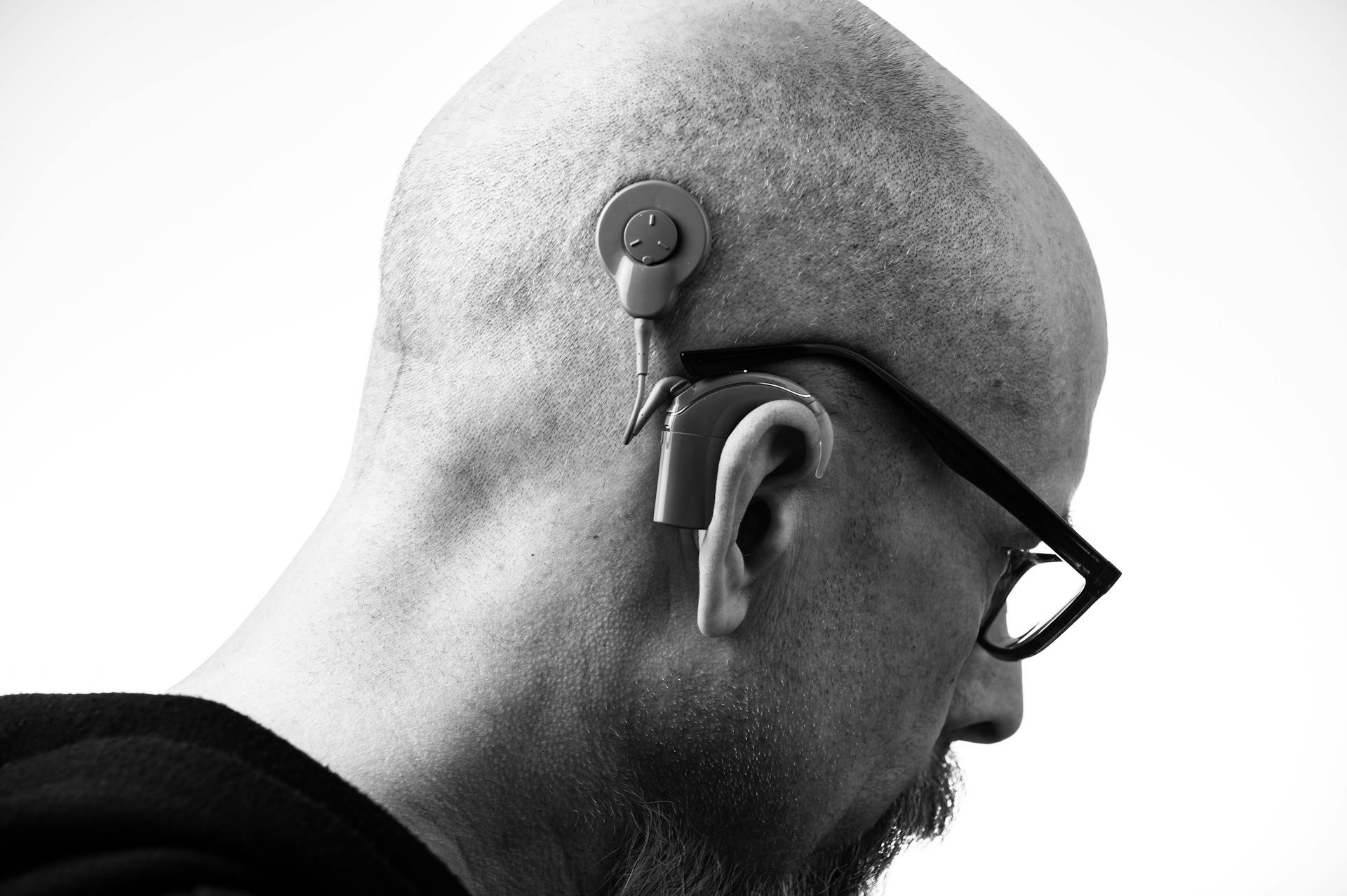
If you're looking for affordable CNA programs, you're in luck. Many community colleges and vocational schools offer programs with financial aid available.
Some programs can be completed in as little as 4-12 weeks, allowing you to start your career as a CNA quickly. These programs are often designed to be flexible, allowing you to balance school with work or other responsibilities.
Financial aid is available for many CNA programs, including federal Pell Grants, state-specific grants, and scholarships. In fact, some programs offer up to $5,000 in financial aid per year.
Curious to learn more? Check out: Certificate Programs
Where to Find CNA Programs with Financial Aid
You can find CNA programs with financial aid through various sources. Community and technical colleges in your area may offer CNA scholarships and other funding support to lower the cost of a CNA certificate program. Some understaffed healthcare facilities offer hiring incentives like CNA scholarships or paid CNA training programs, typically requiring an agreement to work for the facility for a certain amount of time.
Local, state, and federal governments offer financial aid programs, including grants and CNA scholarships, which can help lower your out-of-pocket costs. Nonprofits, community organizations, and private foundations in your area may also offer CNA scholarships and grants to aspiring learners with financial need.
Here are some specific sources to explore:
- Community and Technical Colleges
- Nursing Facilities with Medicare or Medicaid Contracts
- Employers Facing Workforce Shortages
- Local, State, and Federal Government
- Nonprofit Organizations
Available CNA Programs
Paid CNA training programs offer a valuable opportunity for students to receive employer funding for a work commitment after certification. These programs typically combine classroom instruction with hands-on clinical experience.
Program length can vary from a few weeks to several months, but some programs are more structured than others. For example, Samaritan Health's paid certified nursing assistant training program requires a time commitment of 40 hours per week, after which students are eligible to take the New York State certified nursing assistant exam.
To be eligible for Samaritan Health's program, candidates must have a high school diploma or GED certificate, satisfactory references, a pre-employment drug screen, and a criminal background check. They must also be able to lift at least 50 pounds.
For your interest: Health Insurance Schools

Samaritan Health's program is located at Long-term care facilities at Samaritan Keep Home or Samaritan Summit Village. Graduates who pass certification are eligible for employment. The program length is 40 hours per week for four weeks.
If you're interested in exploring CNA scholarships, you can start by checking with local colleges, employers, and non-profit organizations. Colleges may offer dedicated CNA scholarships, while employers may offer funding for CNA training in exchange for a work commitment.
Here's a summary of the paid CNA training programs mentioned:
- Program Name: Samaritan Health Paid CNA Training Program
- Program Length: 40 hours per week for four weeks
- Location: Long-term care facilities at Samaritan Keep Home or Samaritan Summit Village
- Program Terms: Graduates who pass certification are eligible for employment
Cheapest Path to Becoming a Nurse
Becoming a nurse can be a rewarding and challenging career, but it can also be expensive. The cheapest way to become a CNA is through a paid CNA training program, where you don't pay for classes and are compensated during the program. You may be required to complete a work commitment after graduation.
Paid CNA training programs can last from a few weeks to several months and combine classroom instruction with hands-on clinical experience. These programs provide a comprehensive education in patient care and can be a great way to get started in the nursing field.

In some states, government agencies offer full grants or scholarships for people to complete a CNA program. You can also use the FAFSA to determine your eligibility for federal or state aid, including grants and scholarships to cover your education.
If you're already working in a healthcare setting, your employer may offer tuition assistance or reimbursement for CNA training in exchange for a work commitment. Some employers even offer work-study options where you can work part-time while completing your CNA training.
Here are some alternative financing options to consider:
- Paid CNA training programs
- Government grants or scholarships
- FAFSA for federal or state aid
- Employer-sponsored programs
- Work-study options
- Scholarships from employers, non-profit organizations, and colleges
Keep in mind that these options may vary depending on your location, so be sure to research the specific opportunities available in your area.
Types of Financial Aid for CNA Programs
There are several types of financial aid available for CNA programs. Grants are typically need-based and don't require repayment. Scholarships are offered based on various criteria, including merit, need, or specific characteristics.

Loans are funds that need to be repaid, often with interest, after completing the training program. The FAFSA can be used to determine eligibility for federal or state aid, including grants and scholarships.
To be eligible for federal funding, students must submit their FAFSA and include information such as their social security number, federal tax return, and other financial documents. State financial aid opportunities vary dramatically between states; investigate whether your state provides financial aid for CNA students.
Payment plans are also an option to help mitigate the financial burden of CNA tuition rates. Most accredited institutions offer tuition payment plans that allow you to pay throughout the academic year.
Here are the different types of financial aid that CNAs can access:
- Grants: These are typically need-based and do not require repayment.
- Scholarships: Offered based on various criteria including merit, need, or specific characteristics.
- Loans: Funds that need to be repaid, often with interest, after completing the training program.
Private scholarships are another popular way to help fund CNA training. Scholarships are highly desirable because they don't have to be paid back.
Using Financial Aid for CNA Programs
If you're interested in pursuing a CNA program, you'll be happy to know that there are various financial aid options available. Paid CNA training programs offer students a valuable opportunity to receive employer funding for a work commitment after certification.

Some state government agencies offer full grants or scholarships for people to complete a CNA program. Medicare and Medicaid funds in some states pay for CNA training, and some CNA programs at accredited community colleges qualify candidates for Pell Grants.
You can use the Free Application for Federal Student Aid (FAFSA) to determine your eligibility for federal or state aid, including grants and scholarships to cover your education. The FAFSA can be used in CNA programs offered through accredited community colleges.
There are alternative financing options available for CNA education, including state-based grants and aid programs, payment plans, and scholarships. You can also explore employer-sponsored programs, such as tuition assistance or reimbursement for CNA training.
Here are some specific financial aid options for CNA students:
- Work-Study Programs: Some healthcare facilities offer work-study options where you can work part-time while completing your CNA training.
- Employer-Sponsored Programs: If you are already working in a healthcare setting, your employer may offer tuition assistance or reimbursement for CNA training.
Additionally, some states offer tuition-free training for students who meet need-based requirements. These financial aid opportunities vary dramatically between states, so it's essential to investigate whether your state provides financial aid for CNA students.
If this caught your attention, see: These American Students Avoid College Debt by Studying in Europe
Frequently Asked Questions
How much does CNA training cost in NY?
The total cost of CNA training in NY is $1,595, plus additional expenses for physical, immunizations, TB test, text, uniform, and NYS DOH Certification Exam. This investment includes all necessary requirements for certification.
How do I become a CNA in NY for free?
To become a CNA in NY for free, contact Jobs Corps New York City to inquire about their free CNA program and eligibility requirements. Check their local offices for more information on how to enroll.
Featured Images: pexels.com


